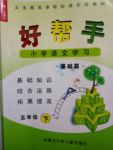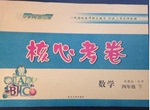题目内容
China’s Zhou Yang won the Olympic Games women’s 1,500-metre short-track gold in 2009.

“I told myself a few days ago ‘Zhou Yang,you Can do this’”the18-year-old Olympic newcomer said. “I believed in myself. ”
“This gold medal will change things. It will give me more confidence. It will give my mum a better lifestyle. ”
China’s Shen Xue,aged 31,and Zhao Hongbo,aged 36, celebrated St. Valentine’s Day and the Chinese New Year by winning a gold medal in the pairs figure skating at the Vancouver Olympics . —“We have not competed(比赛) much in the last two years and we came back to compete at the Olympic Games as it is our dream to win an Olympic gold medal.”
China’s Wang Meng won again her Olympic women’s
500-metre short track skating title on Wednesday.
“I have a lot of confidence. I feel that it’s my duty to win that. It’s still the Chinese New Year holiday,”she said,“Kowtow(磕头)was the only way to express my thanks to the coaches. team leaders and teammates. ”
小题1:How old is the Olympic newcomer,Zhou Yang, now?
小题2:What is Shen Xue and Zhao Hongbo’s dream?
小题3:In what sport did Wang Meng win the gold medal?
小题4:Where may you probably read this passage?

“I told myself a few days ago ‘Zhou Yang,you Can do this’”the18-year-old Olympic newcomer said. “I believed in myself. ”
“This gold medal will change things. It will give me more confidence. It will give my mum a better lifestyle. ”
China’s Shen Xue,aged 31,and Zhao Hongbo,aged 36, celebrated St. Valentine’s Day and the Chinese New Year by winning a gold medal in the pairs figure skating at the Vancouver Olympics . —“We have not competed(比赛) much in the last two years and we came back to compete at the Olympic Games as it is our dream to win an Olympic gold medal.”
China’s Wang Meng won again her Olympic women’s
500-metre short track skating title on Wednesday.
“I have a lot of confidence. I feel that it’s my duty to win that. It’s still the Chinese New Year holiday,”she said,“Kowtow(磕头)was the only way to express my thanks to the coaches. team leaders and teammates. ”
小题1:How old is the Olympic newcomer,Zhou Yang, now?
| A.18 | B.19 | C.31 | D.36 |
| A.To celebrate Chinese New Year. | B.To give their parents a better life. |
| C.To win an Olympic gold medal. | D.To spend a special Valentine’s Day. |
| A.Figure Skating. | B.Women’s l,500 metre short-track skating. |
| C.Skiing. | D.Women’s 500 metre short-track skating |
| A.In a story book. | B.In a news report. |
| C.In a TV play. | D.In an advertisement. |
小题1:B
小题1:C
小题1:D
小题1:B
小题1:根据you Can do this’”the18-year-old Olympic newcomer said. 及他说这句话的时间是2009年,可知18+1=19,故选B。
小题1:根据and we came back to compete at the Olympic Games as it is our dream to win an Olympic gold medal.”描述可知选C。
小题1:根据China’s Wang Meng won again her Olympic women’s
500-metre short track skating title on Wednesday.可知选D。
小题1:这是一篇关于体育方面的信息,故有可能在新闻报道里面看到。选B。

练习册系列答案
 小学学习好帮手系列答案
小学学习好帮手系列答案 小学同步三练核心密卷系列答案
小学同步三练核心密卷系列答案
相关题目



